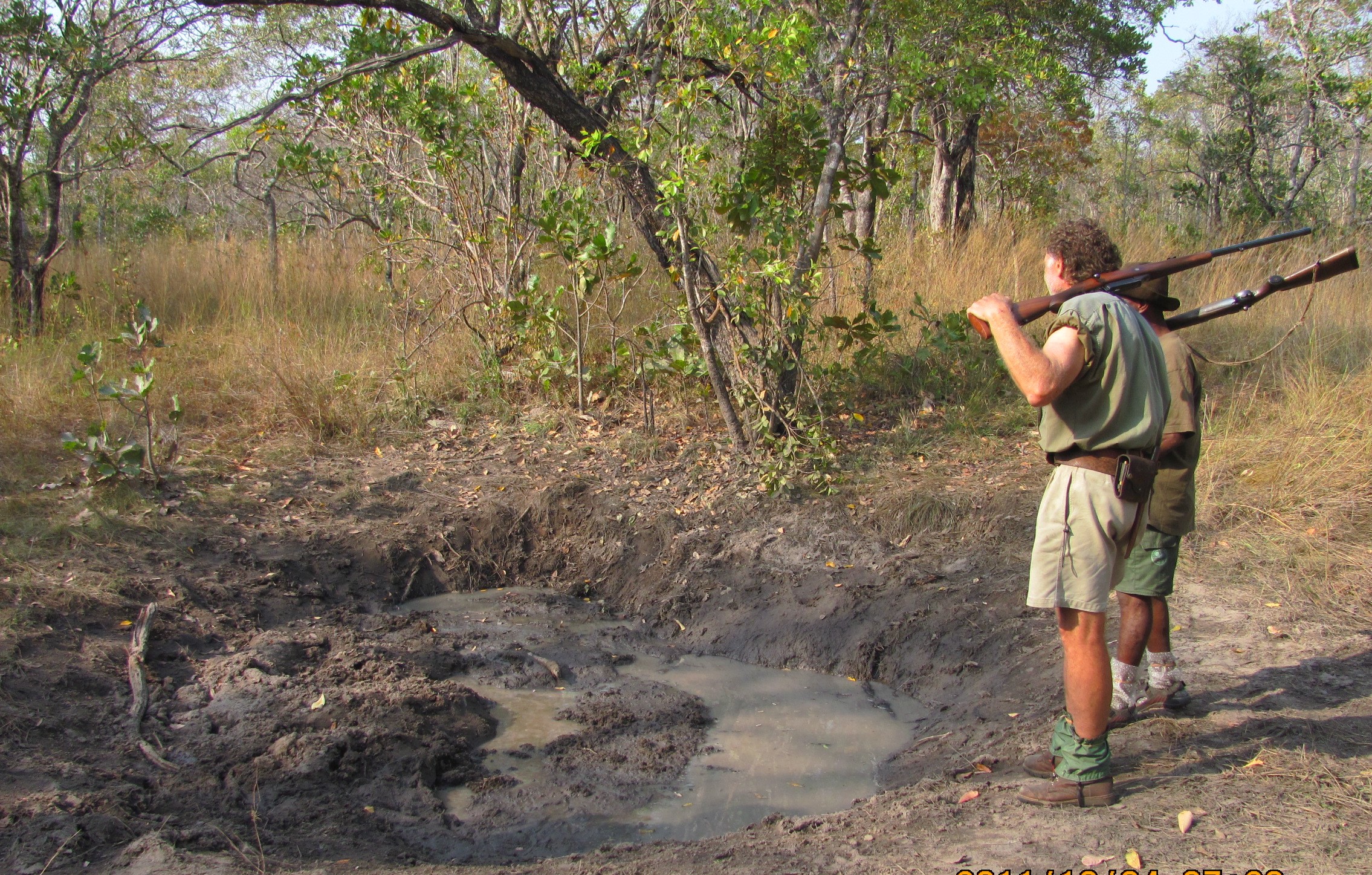There were no dry streams or other signs of water around. Just the seep. It was pushed up by some mysterious force from below; gently, so that it was enough for the few zebra, hartebeest and sable and the lone kudu bull whose tracks said they regularly showed up – and for the solitary elephant bull that had left his big pale smudges, and for the old dagga boy.
He had been here less than an hour ago, his saucer-sized prints told us. He had waded in, drank with muzzle stretched to the cleanest spot, then splashed deeper and lowered himself into the coolness, grunting with pleasure, no doubt. He lay for a while before he rolled, again and again, sloshing out most of the precious liquid and churning the rest into mud-and-dung slush. Then he rose and lumbered off, ignorant or indifferent to the damage he had caused. On his way to his favourite shade patch he had sparred a bit with some young trees, leaving their wrist-thick trunks splintered and bruised.
His tracks showed that his hooves were no longer crisp around the toes. He was old. His joints had become stiff and his muscles stringy and unwilling. The stronger ones had pushed him out of the herd and now he has settled here, all by himself. He has good grazing here, and the mud hole, so why go anywhere?
He is not protective of his patch of bush. He would tolerate companions here; younger ones, not yet ready for the tough world of the breeding bulls, or others, old like him. Perhaps he knows, together, they will have a better chance when the lions come. As long as they stuck close together and did not run, those calculating cats would circle and stare and growl and mock-charge and eventually leave to seek out the breeding herd. There, they knew, would be opportunities to exploit in the panic and confusion when they challenged it on a dark night.
So, he was content to just be here, to pluck at tufts of grass, to suck at the muddy water, cover himself with the sticky mud that would protect him from the biting flies and smother the parasites on his hide. Afterwards perhaps lie down in the shade and chew his cud and dream while the water evaporating from the mud cooled him.
The pool? The slow feed would eventually refill it and the murkiness would settle and leave a thin film of cleaner water. But he would be back – every day, until his rolling had reduced the pool to a patch of tight grey mud which the sun would bake as hard as rock.
But he does not concern himself with tomorrow. When he can no longer drink from this pool, his thirst will drive him to wander and, guided by instinct and his senses, find another, hopefully in time. He can endure a lot, so he has three, four, maybe more days, depending on the heat and the grazing available, before dehydration catches up with him. Over this time, he will rely on the little moisture in his food, and on water that his body will metabolise, mainly from fat and starches, to maintain his moisture balance.
That evening I wrote in my diary: He just is. When the really hard times come, he lives through them, moment by moment. He does not think about death; how he might slowly weaken till he got stuck in some patch of tight mud and eventually gave up the struggle to get out. Nor does he hope for the lions, for one final heroic stand, his blood high, before they finally pull him down and smother him…
I envy him. He lives the moments as they come, and they fill his days with being an old buffalo bull. It is enough for him – and with luck, the end will come early and with some honor, by the lions. For now, he is in open conversation with earth and sky.

